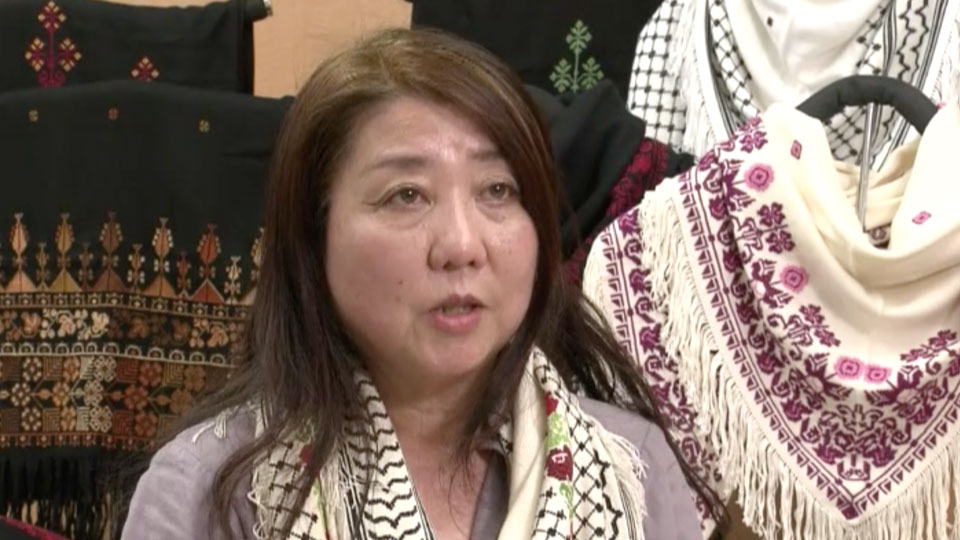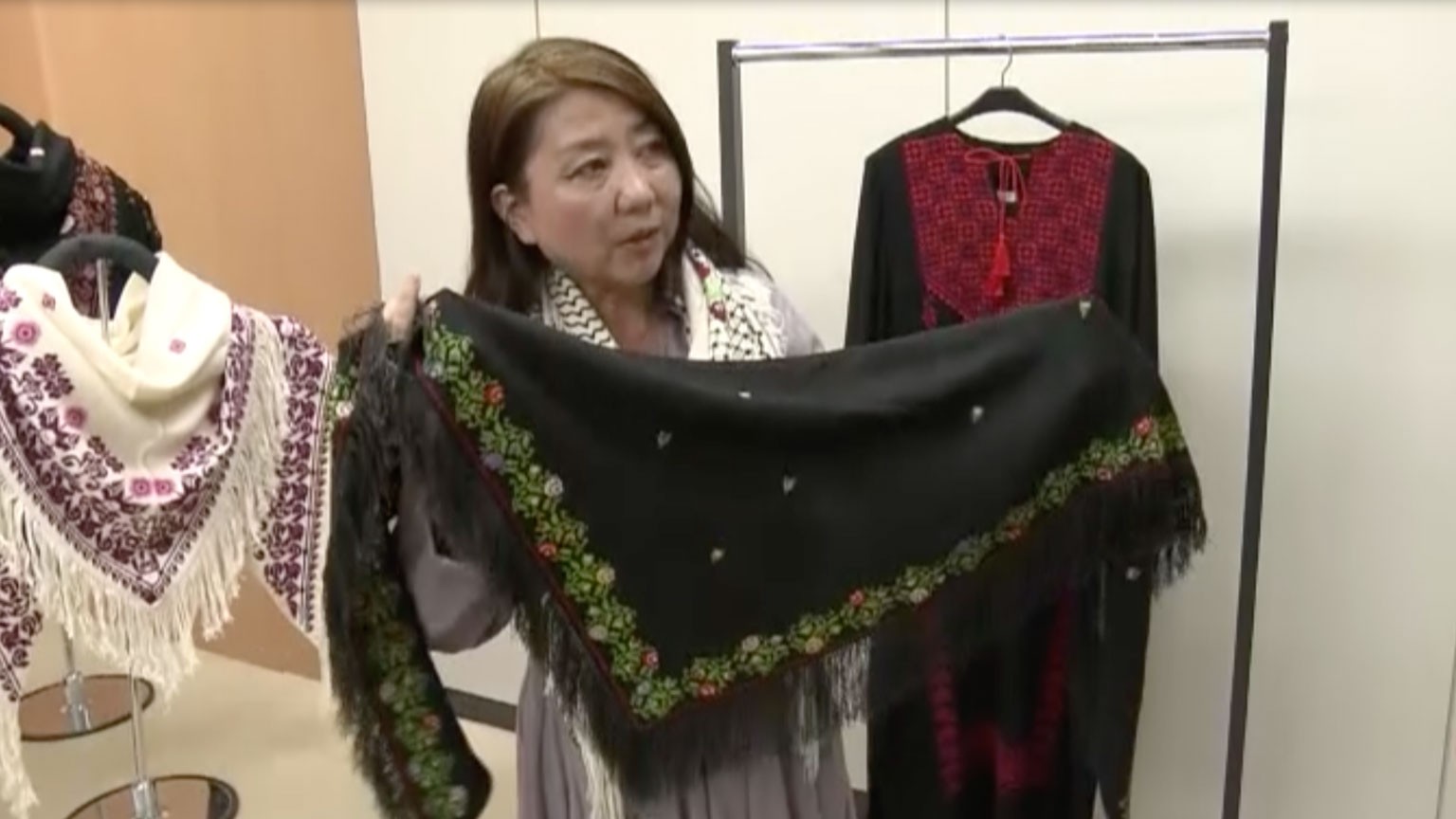"No water, no food, no electricity"
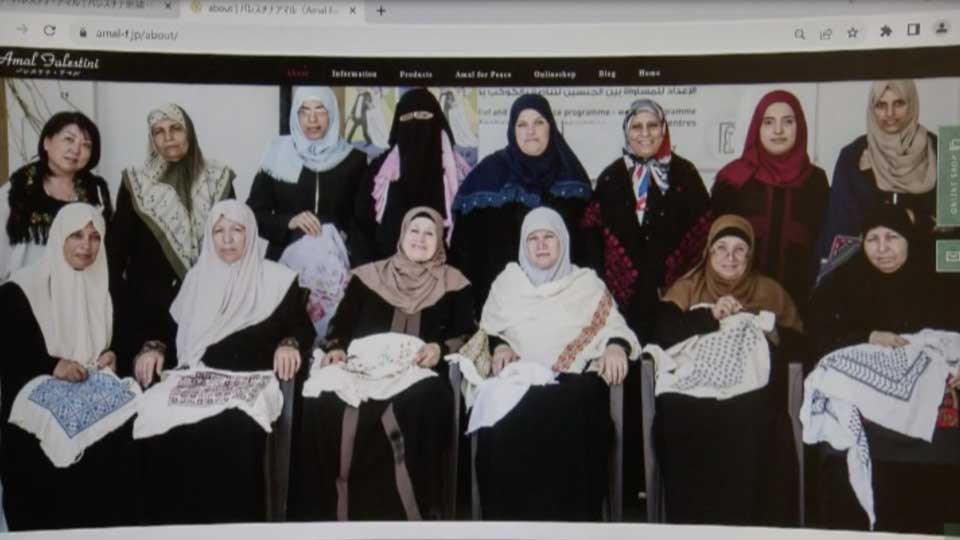
There are 300 women who have made items that Kitamura sells in Japan. As of late October, she has not been able to confirm the safety of a single one.
To learn more, she reached out to an acquaintance living in the southern part of the Gaza Strip. The next day, she received a reply: "No water, no food, no electricity. My house has been destroyed by rockets. My children are sick from the sound of rockets. We have no money to buy food for our children."
The email stated that people are alive but the situation is so dire that they feel they have already died.
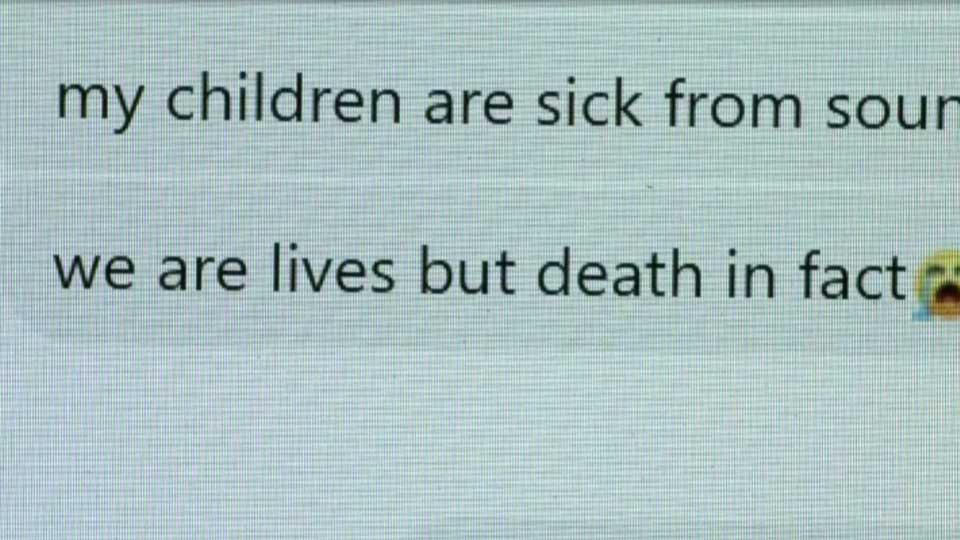
Kitamura says: "Bombing may have already destroyed the women's homes and the facilities of the UN agency where the women do their embroidery.
"I haven't been able to sleep some days because I am so worried. I hope that the women survive somehow and go back to making embroidery. I hope for an immediate ceasefire, and for more relief supplies."
Embroidery as a source of pride
Kitamura lives in Shiga Prefecture. She runs a website that sells embroidery products handmade by women in the Gaza Strip.
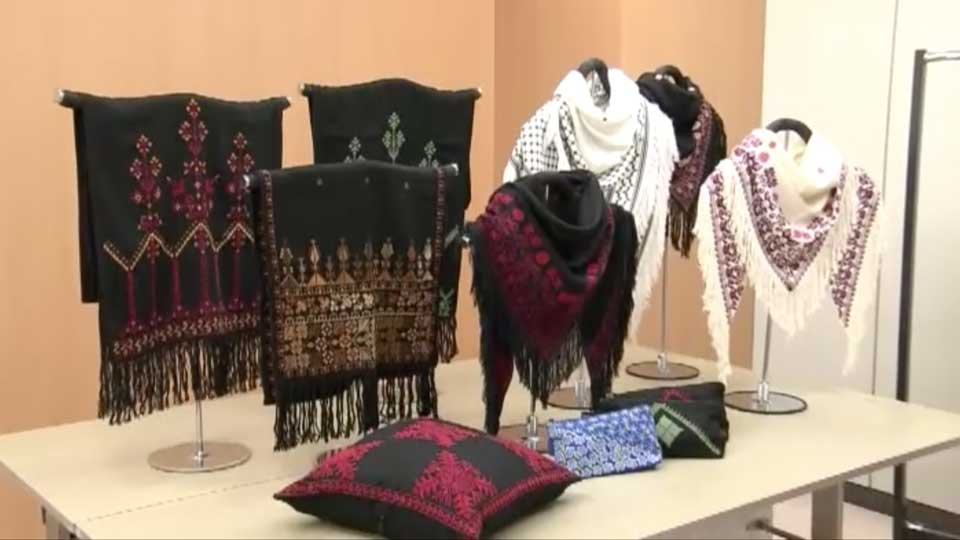
The site offers about 30 types of embroidery items that include motifs such as roses and feathers. A single handmade scarf can take up to three months to sew.
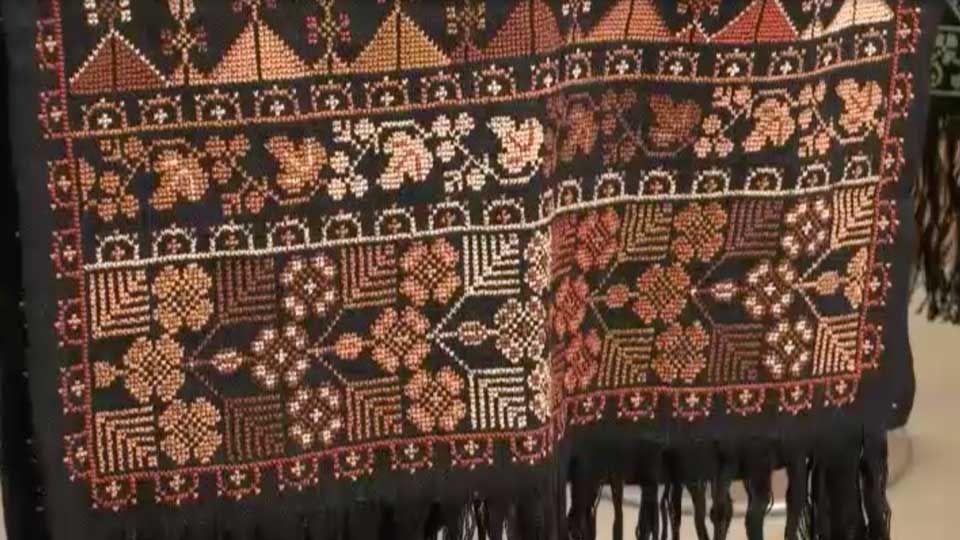
Kitamura says each pattern has a story, and there are regional variations between the pieces.
"In Palestine, it was a tradition to tailor one outfit with embroidery before marrying. Embroidery is a symbol of identity that is passed down from mother to daughter, from generation to generation," she explains.
Its value goes beyond culture: "One of the women who lost her husband was able to send her children to college solely because of her embroidery work. For women in the Gaza Strip, embroidery is a source of pride."
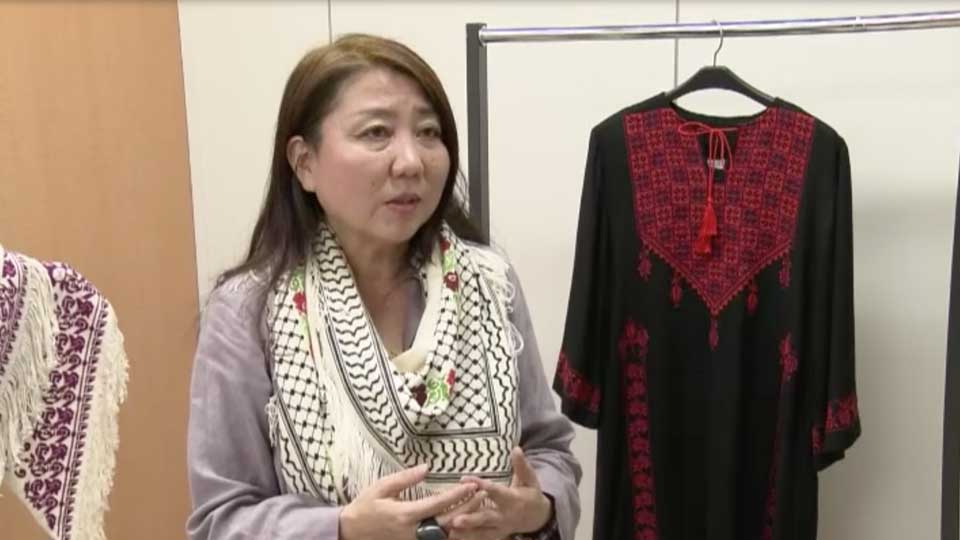
Kindness and generosity
Kitamura first visited the Gaza Strip in 1999 as a medical volunteer and was struck by the warmth of the local people.
"I was invited to a friend's house and they prepared a sumptuous meal with a lot of ingredients, finding money from somewhere," she recalls. "I wondered how they could be so kind to me in such a difficult situation. They really are a hospitable people."

Back then, Kitamura purchased a handmade scarf embroidered with roses. She still loves its colors and its high quality.

Rebuilding lives
Kitamura wants people to take part in an advance support initiative to help people in the Gaza Strip. She is taking orders and sending on the proceeds straight away, even though customers can't be sure when the items will be delivered.
People can choose from coasters, pouches, cushion covers, scarves, and more. More than 600 orders have already been placed.
Kitamura offered the same kind of support during a period of violence two years ago. The women who sew the embroideries sent messages at the time, saying: "Thanks to the orders from Japan, we were able to rebuild our lives."
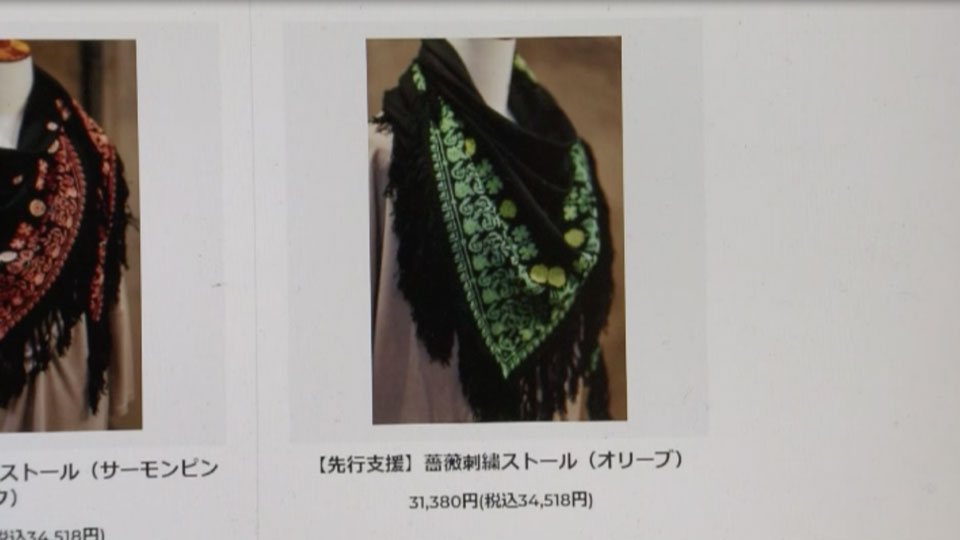
"They need work to start their lives from the rubble," says Kitamura.
"One day, when this war is over, we would like to have them return to making embroidery to support their livelihoods. We are grateful for our customers' advance support and we pray for the future of the Gaza Strip."
